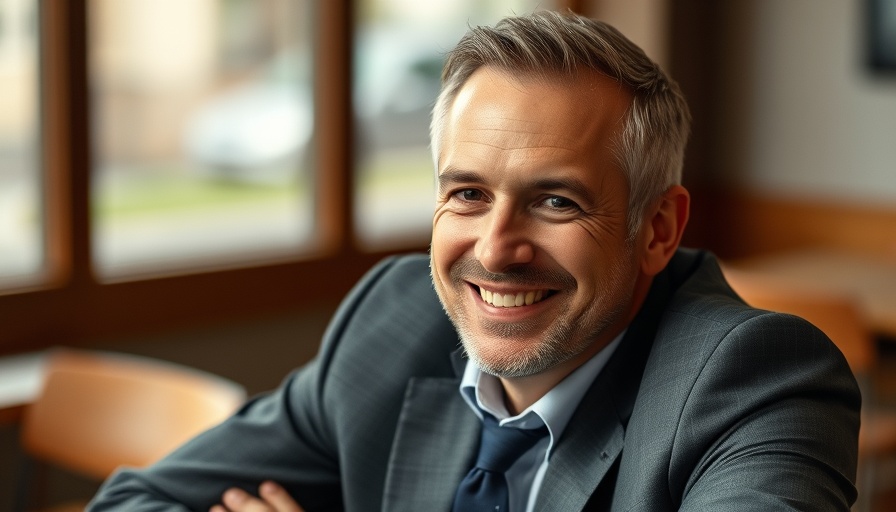
Community Connections: A New Approach to Mental Health
In recent times, the pressing discourse around suicide prevention has primarily revolved around clinical methods and emergency responses. However, Dr. Kent Corso, founder of PROSPER Together, advocates for a shift in this narrative—turning the focus from clinics to communities. Through grassroots training initiatives in rural areas, his organization aims to empower everyday citizens in suicide prevention and intervention, bridging the crucial gap between research and practical applications that has persisted for over three decades.
The Disconnect: Understanding Social Factors
Dr. Corso emphasizes that suicide cannot be solely contextualized as a mental health crisis; rather, it is inherently a social issue. In tight-knit communities, particularly in rural America, pride in self-reliance often prevents individuals from seeking help. This sentiment can be especially strong among men who are inclined to support their neighbors yet hesitate to admit their own struggles. “Communities that may not enter a therapy office readily will often rally around a neighbor in distress,” Dr. Corso states, presenting a unique opportunity for proactive intervention.
Barriers to Access: The Reality of Rural Healthcare
Access to mental health professionals remains a formidable challenge in many rural areas, where individuals might face months of waiting. Dr. Corso warns, “Any efforts made now may not alleviate the crisis of someone struggling today.” This highlights the urgency for alternatives that don’t depend solely on traditional therapy.
Emphasizing Neighborly Support: The Role of PROSPER Together
PROSPER Together's approach is a call to arms for community members to learn how to recognize distress signs, ask crucial questions, and utilize practical tools like Crisis Response Plans (CRPs). These steps have proven transformative, reportedly reducing suicide attempts by up to 76% when implemented in person. The simplicity of these interventions is key: Dr. Corso insists that with the right guidance, anyone can acquire these skills. “Empowering communities starts with providing them with knowledge and tools,” he notes.
The Long Game: Building Confidence in Your Community
Dr. Corso advocates for a long-term strategy, focusing on instilling confidence, comfort, and competence among community members. “When individuals feel ready to help, they step up,” he explains, and PROSPER Together’s training programs have revealed notable improvements among participants in these essential areas.
Bridging the Gap Between Research and Practice
Another hurdle that Dr. Corso identifies is the delay in implementing effective interventions grounded in research. Clinicians often rely on outdated experiences rather than current studies, leading to a disconnect between the best practices in mental health and the care provided. The pressing question is: how can communities evolve to make timely, informed decisions based on recent findings?
Creating a Holistic Mental Health Landscape
This progressive view of community-led intervention aligns with contemporary wellness trends that prioritize a holistic approach to mental health. By integrating nutrition, exercise, and mindfulness practices into community-based initiatives, we build a comprehensive framework that fosters emotional well-being. The connection between mental clarity and physical health cannot be overstated, as many studies indicate that an active lifestyle and proper nutrition are vital in maintaining mental resilience.
The Impact of Community on Emotional Well-being
Understanding how deeply interconnected mental health is with social support systems offers a more nuanced perspective on wellbeing. Informal networks of support, such as friends, family, and neighbors, can offer vital emotional backing, making all the difference for individuals in crisis. This idea echoes through various disciplines that prioritize emotional resilience, from fitness coaching to health education.
Join The Movement: Cultivating a Supportive Community Mindset
The movement toward community-based suicide prevention embodies the ethos of shared responsibility. It calls upon each individual to become a neighbor who looks out for one another, emphasizing that “We don’t need more doctors; we need more neighbors.” With training from organizations like PROSPER Together, we can all play an active role in creating a supportive environment that champions mental health.
Are you ready to take part in this meaningful change? Learn more about community mental health initiatives in your area or get involved with PROSPER Together to become a trained support for those in need.
 Add Row
Add Row  Add
Add 




Write A Comment